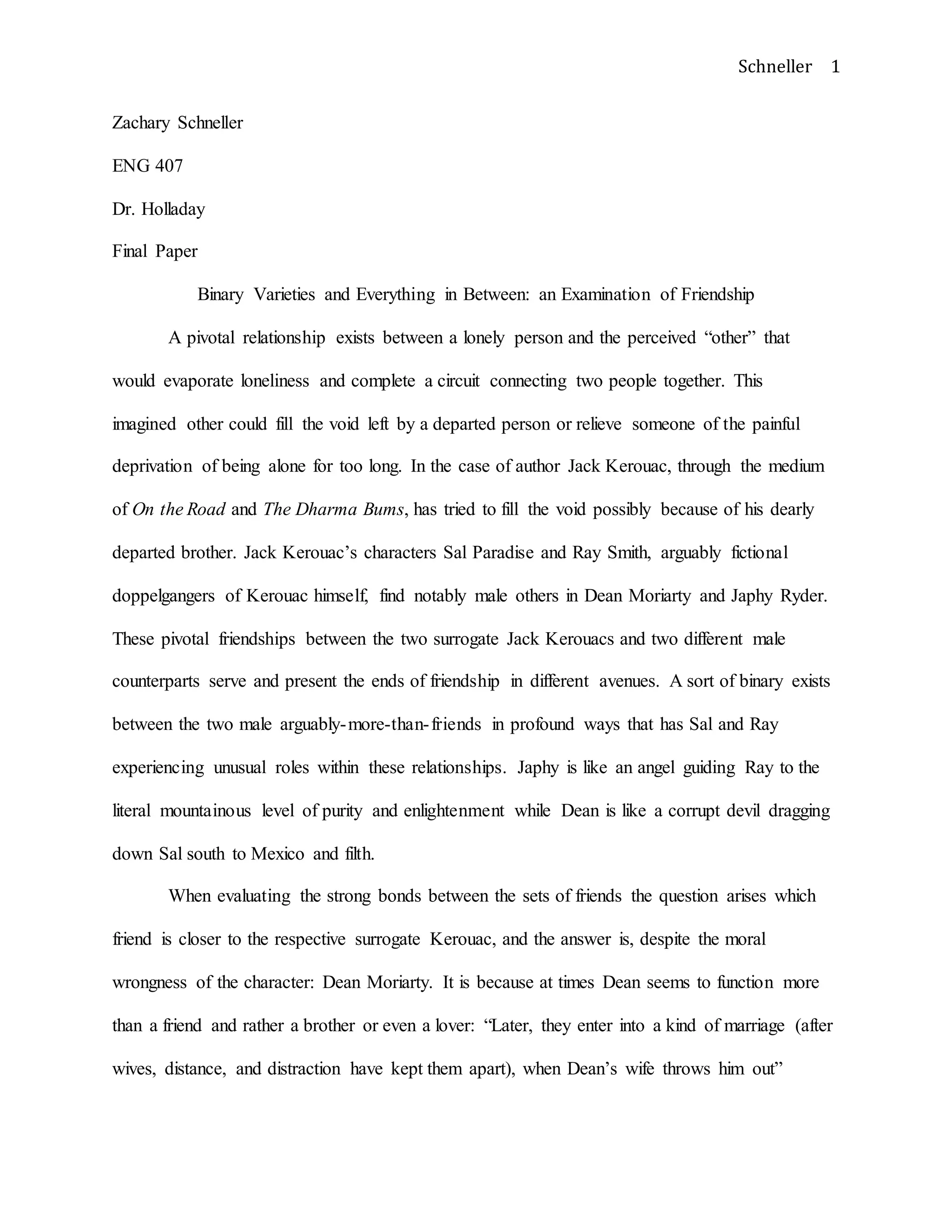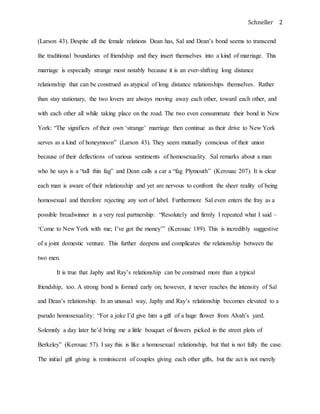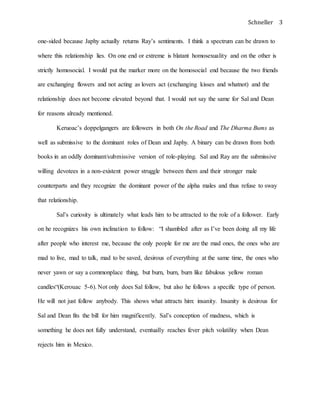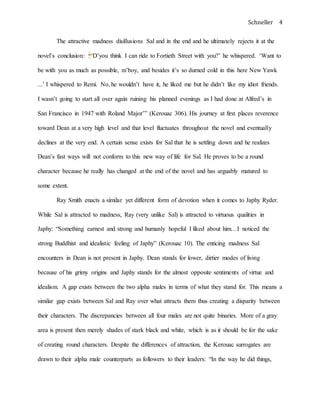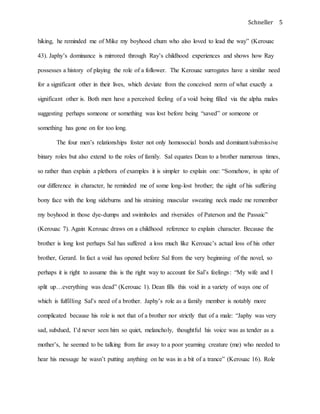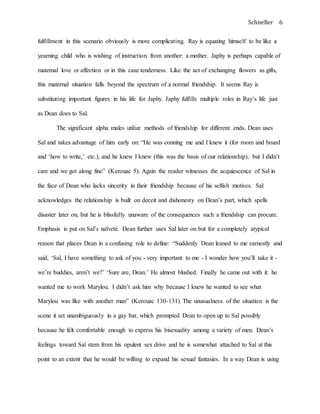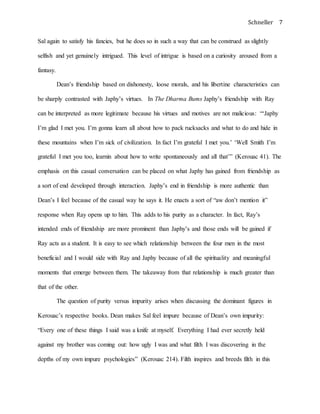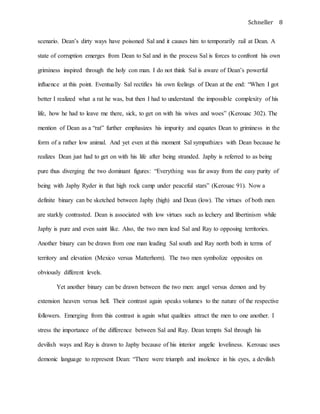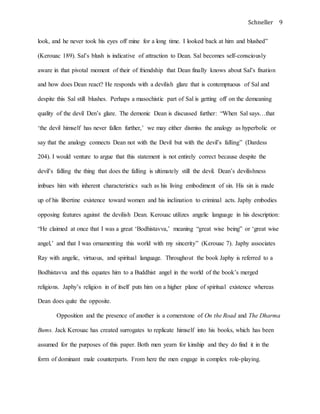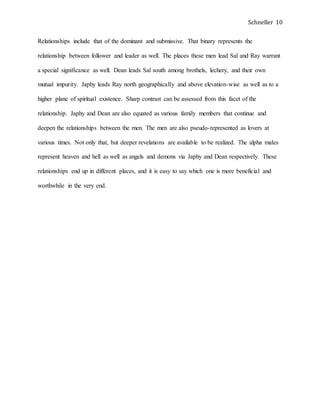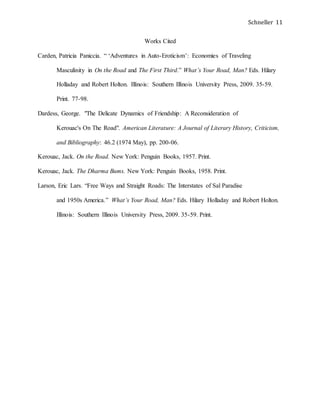This summary analyzes relationships in Jack Kerouac's novels On the Road and The Dharma Bums. It discusses the friendships between Sal Paradise and Dean Moriarty, and Ray Smith and Japhy Ryder. It argues that Sal and Dean's relationship seems to transcend friendship at times, with hints of intimacy between the two men. Meanwhile, Ray and Japhy's bond is more virtuous in nature. Overall, the document draws various binaries between the two sets of friends, such as Dean representing impurity and Japhy representing purity. It also analyzes the different ways each man fulfills familial roles for Sal and Ray.
